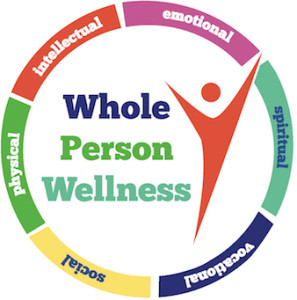Do I really need therapy? I can usually handle my problems.
Everyone goes through challenging situations, even temporary ones. While you may have successfully navigated other difficulties, there’s nothing wrong with seeking extra support when you need it. Therapy provides long-lasting benefits, giving you the tools you need to avoid triggers, to re-direct damaging patterns, and to overcome the challenges you face.
Is therapy right for me?
Therapy is for people with enough self-awareness to realize they need assistance—that’s admirable! You are taking responsibility by accepting where you are in life and making a commitment to change the situation by seeking therapy.
People have different motivations for using psychotherapy. Some may be going through a major life transition (unemployment, divorce, new job), or may not be handling stressful circumstances well. Some people need assistance managing low self-esteem, depression, anxiety, addictions, relationship issues, spiritual conflicts, and creative blocks. Others may want to learn more about themselves or to be more effective with their life goals.
Therapy can provide skills and some much needed encouragement to get you through these periods. People seeking psychotherapy are ready to meet the challenges and to make changes in their lives.
What is the point of therapy?
The ultimate purpose of therapy is to help you apply what you learn to your life. Beyond the work you do in therapy sessions, your therapist may suggest exercises you can do outside of therapy to support your process, such as reading a specific book, journaling on specific topics, noting particular behaviors, or taking action on your goals. These exercises will add to the discussions in your therapy sessions.
It is important to understand that you will get more results from therapy if you actively participate in the process. People seeking psychotherapy are ready to make positive changes in their lives, are open to new perspectives, and take responsibility for their lives.
Why do I need you? Can’t I just talk to a friend?
Of course, you can talk with your friends, but if you talk about your issues with them all the time, they may not be your friends for long. Besides, your friends, very often, are not equipped to be able to help you to rise above or move around the stumbling blocks in your life. Let your friends be your friends, your cheerleaders, your pals!
As a therapist, I strive to help people make new discoveries about themselves and about what helps them overcome their obstacles. My clients trust me to guide them on their journey to achieve the goals they set for themselves.
Because I understand the transformative power of therapy, I am passionate about learning, listening, and bringing balance and wellness to the lives of my clients. I enjoy working with people from all walks of life, and if you or someone you love is going through a difficult time of depression, anxiety, or another mental health issue, please contact me to arrange a consultation.
What is cognitive behavior therapy, anyway?
Cognitive behavior therapy is used to treat people suffering from a wide range of disorders, including anxiety, phobias, depression, and addiction. CBT is one of the most researched types of therapy, in part because treatment is focused on highly specific goals and results can be measured relatively easily.
In order for CBT to be effective, the individual must be willing to spend time and effort analyzing his or her thoughts and feelings. Self-analysis can be difficult, but it is a great way to learn more about how what we feel on the inside impacts our outward behavior.
Cognitive behavior therapy is also well-suited as a short-term treatment option that does not necessarily involve pharmacological medication. CBT helps clients to develop coping skills that are useful both now and in the future.
What is whole-person wellness?
Whole-person wellness is the intersection of your beliefs and everyday activities. It is tailored to you and your personal needs, and the assessment process is behavior-specific. Whole-person wellness promotes the concepts of moderation, rather than excesses; it encourages finding balance among various facets of everyday life activities. Rachele also emphasizes the importance of personal ownership in shaping one’s health; providing a broad framework for the integration of activities to enhance your quality of life. She encourages you in your pursuit of being as healthy as possible in the areas of emotional, intellectual, physical, social, spiritual and vocational health.
